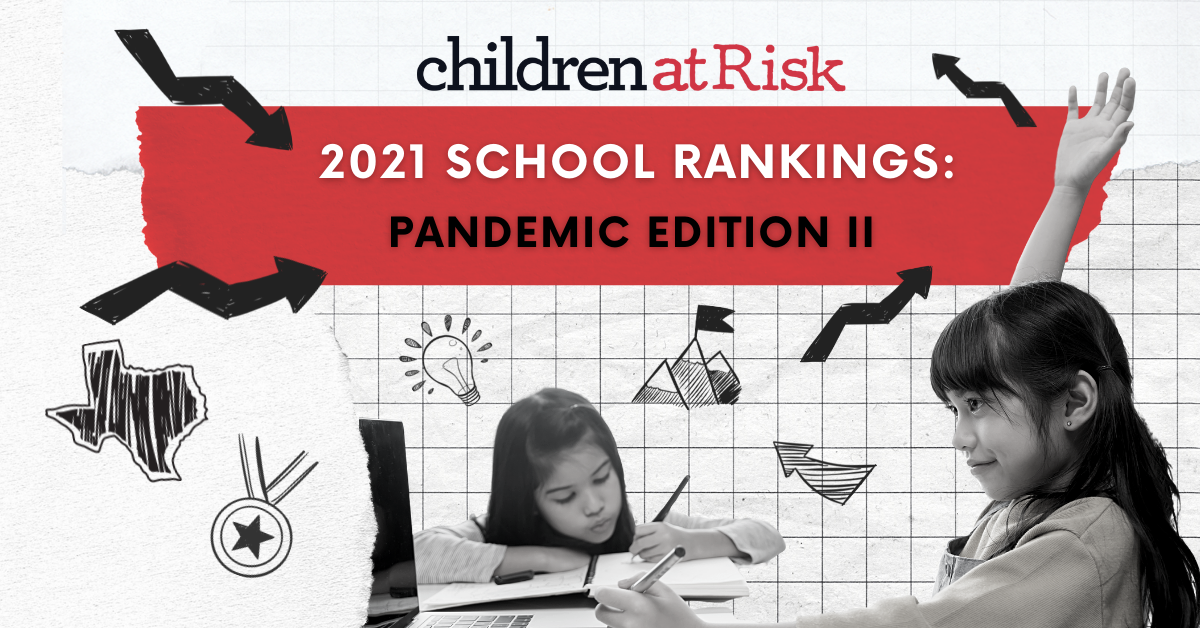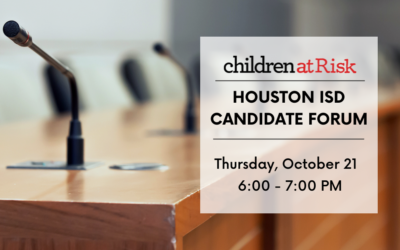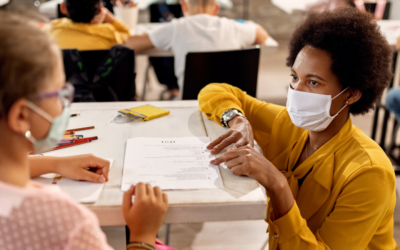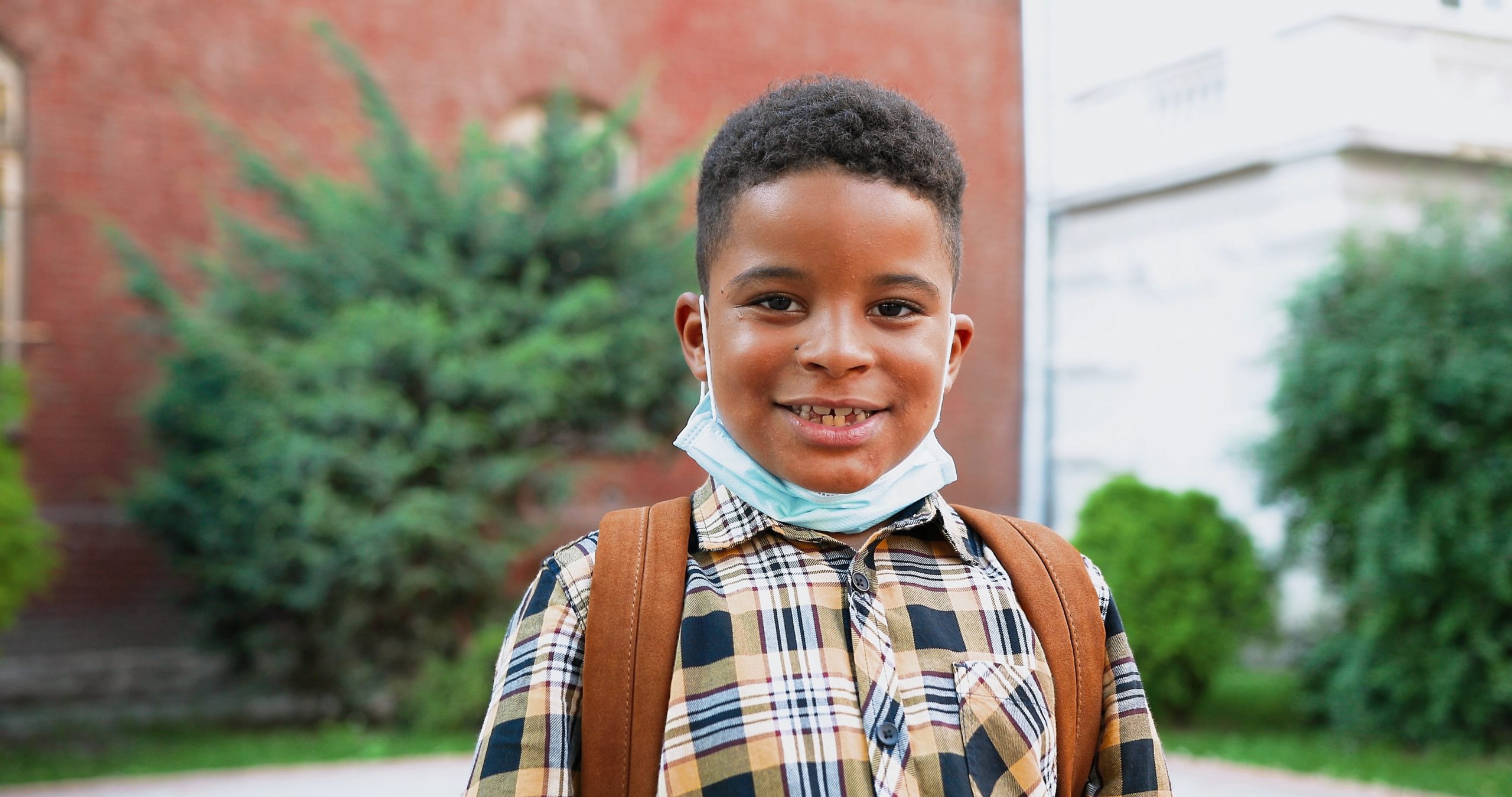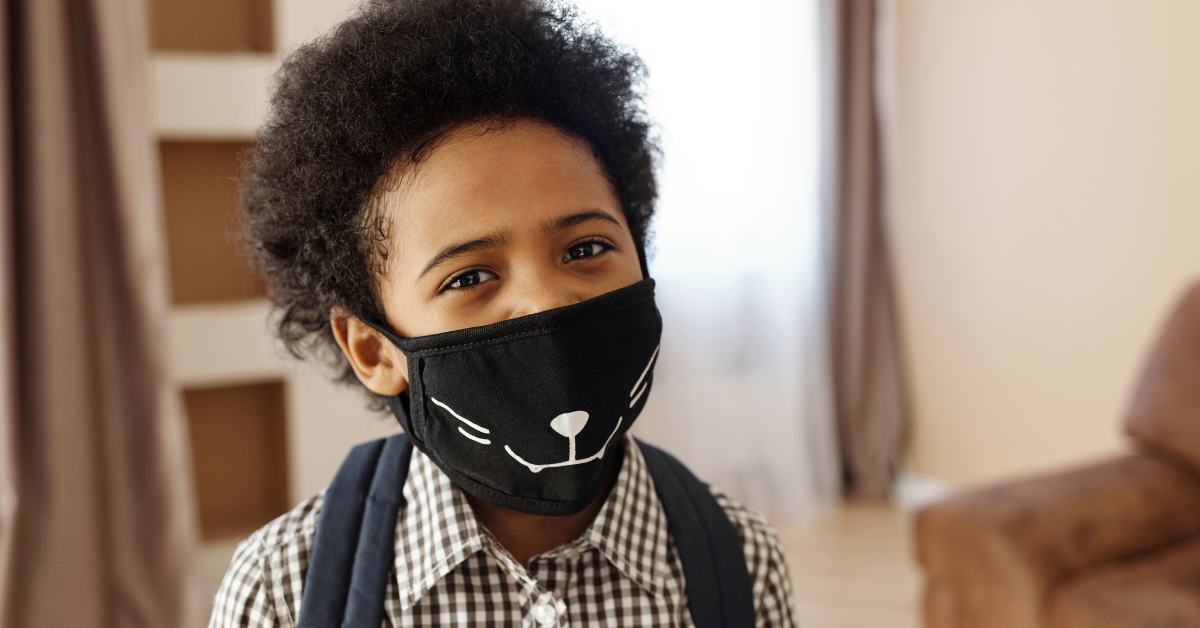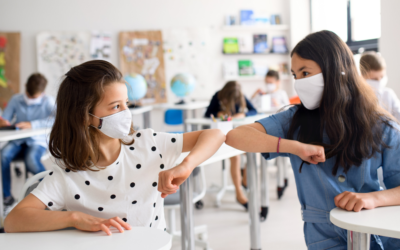PK-12 Education
Only 1/3 of Economically Disadvantaged 3rd Graders are Reading On Grade-Level In Texas
One in ten children in the U.S. is born in Texas. Providing 10% of our country’s population with a quality education is critically important to the future of our local, state, and national economies. CHILDREN AT RISK conducts research to understand trends, inequities, resources, and opportunities in public education. We use that research to advocate for policy change at the local, state, and federal levels.
The Center for Social Measurement & Evaluation
One in ten children in the U.S. is born in Texas. Providing 10% of our country’s population with a quality education is critically important to the future of our local, state, and national economies.
Primarily achieved through our Center for Social Measurement and Evaluation (CSME), CHILDREN AT RISK works to ensure all Texas children have access to quality education, so they have the skills necessary to thrive in our 21st-Century economy.
Through strategic partnerships, CHILDREN AT RISK researches trends, inequities, resources, and opportunities to improve public education. We use this research to educate policymakers and advocate for better education policies
The Center for Social Measurement and Evaluation...
Collects and analyzes data on the quality of public education in Texas.
Collaborates with schools, districts, and agency
leaders to identify and evaluate innovative
practices understand their current needs and share our research findings.
Advocates for education policies that address racial and economic disparities, provide adequate funding, improve data collection practices and transparency, and expand
public pre-kindergarten programs.
Houston A+ Challenge Joins Children at risk
CHILDREN AT RISK is proud to welcome Houston A+ Challenge to the team!
Since 1997, Houston A+ Challenge has led an experienced, interconnected team of professional coaches to give school administrators, specialists, and teachers the tools they need to maintain a focus on student learning and academic growth. To date, they have served over 250,000 students and continue to grow.
Both nonprofits work tirelessly to be the catalyst for change Texas children need and are now combining efforts to increase the impact of their work to improve the public education system.
Read our press release here.
Our Latest Pk-12 EDUCATION Research & Resources
CHILDREN AT RISK and Texas Family Leadership Council Host Second Annual State of Black Children in Texas
On Thursday, February 24, the Texas Family Leadership Council and CHILDREN AT RISK hosted the second annual State of Black Children summit. The summit, sponsored by Amazon and Amerigroup, explored the challenges Black children face growing up in Texas and how to best...
Which Texas Schools Were Most Resilient?
For more than a decade, CHILDREN AT RISK (C@R) has ranked and graded Texas public schools to help parents, educators, and community members understand how schools in their community are performing, and to spark dialogue on the quality of public education across Texas....
C@R Hosts HISD Trustee Candidate Forum
Elections for Trustees for the Houston Independent School District Board are this November! On October 21st, CHILDREN AT RISK hosted a virtual candidate forum. Watch the recording linked below to hear how they plan to address educational inequity, the challenges for...
Attendance & Learning in the time of COVID-19
IN THE TIME OF COVID: Attendance & LearningResearch shows that students who attend school regularly earn higher grades are more likely to graduate and are better prepared for college. The pandemic made it difficult for many students to attend and engage in school,...
Special Education in the time of COVID-19
IN THE TIME OF COVID: Special EducationSpecial education policies help ensure students with disabilities are placed in the most appropriate environments with the accommodations necessary to meet their learning needs. How has COVID-19 affected special education?For...
Student Mental Health in the time of COVID-19
IN THE TIME OF COVID: Student Mental HealthMental health is an important issue that affects students every day. Having access to mental health services can reduce the stress caused by difficult situations and improve academic performance. Post-pandemic it is more...
In the Time of COVID: Student Rights and School Policies
IN THE TIME OF COVID: School Policies & Student RightsCOVID-19 changed our public education landscape overnight. Thousands of Texas schools and nearly 5.5 million students had to adapt to new policies and health guidelines. As schools grapple with COVID's impact,...
School Discipline
IN THE TIME OF COVID: School DisciplineSchool discipline policies are guidelines that outline the rules of a school. They're important because they help to keep order in schools and to protect students from violence or abuse by other students, teachers, or...
TREC Hosts Racial Equity Roundtable on Going Back to School under COVID-19
On Wednesday, September 29, CHILDREN AT RISK and the Texas Racial Equity Collaborative launched the first in a series of monthly roundtables centered on racial equity first These monthly Racial Equity Rapid Roundtables will gather community leaders, child advocates,...
Special Session Update: Public Education Takes Center Stage
Today, August 30th, the Texas House Public Education Committee will hold a hearing on mask mandates. Two school mask-centered bills are up for public discussion. HB 164 (Dutton) would give school districts the flexibility they need to follow public health...
C@R & Shell Host Webinar on the Resegregation of America’s Schools
Education leaders come together to explore the root causes and potential solutions to school segregation in the 21st century. On August 18th, CHILDREN AT RISK hosted “The Resegregation of American Schools: The Economics of Inequity,” a discussion between education...
C@R & Shell Host Racial Equity in STEM Education Webinar
Teachers and administrators have spent the past 18 months re-envisioning the possibilities of the traditional classroom and what the future of education may hold for students today. On August 4th, CHILDREN AT RISK hosted "Racial Equity in STEM Education," a webinar...

